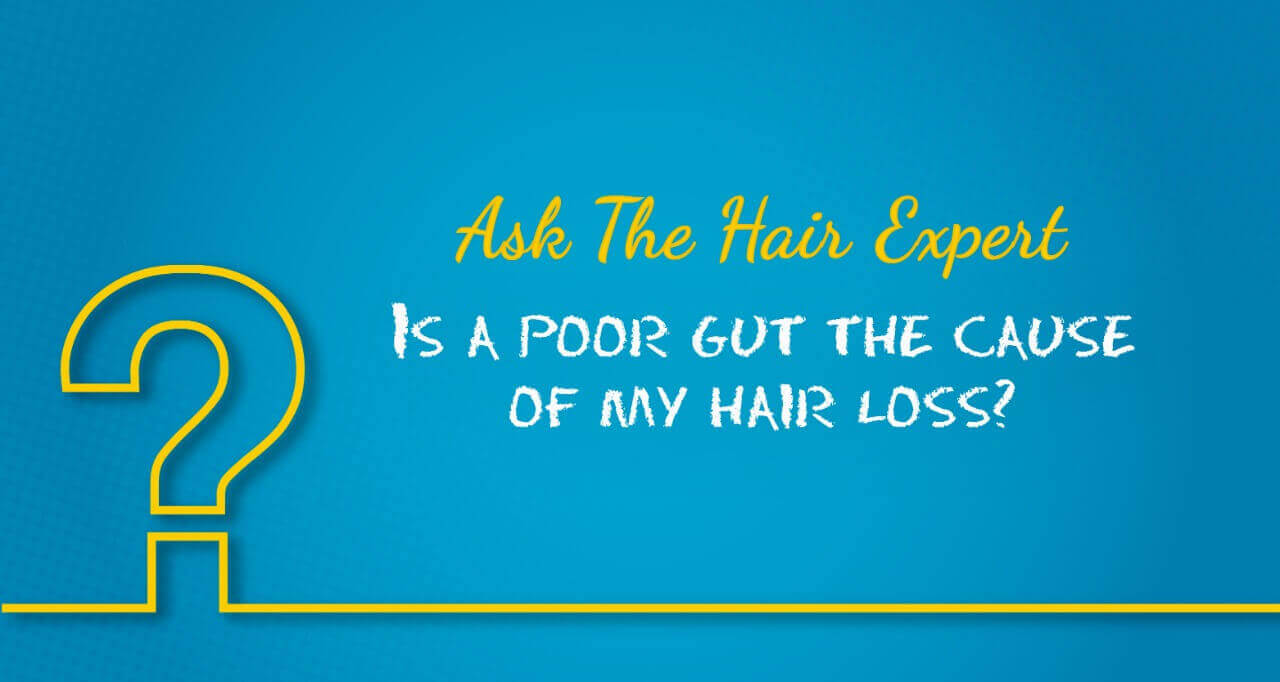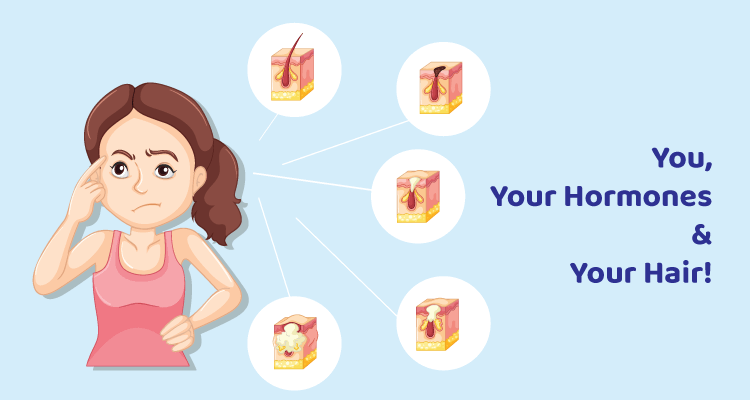Most of us have heard of the term Eczema, at one point or the other. Our mind immediately associates it with the skin.
But we do not relate it to hair or scalp.
Yes. Scalp Eczema is a condition that exists, and can be quite depressing to deal with! It affects your scalp a great extent, can lead to hair loss and it can be a very painful experience. It not just affects you physically but also psychologically. The social stigma associated with eczema as such is very widespread, unfortunately.
Awareness and understanding of this condition are very poor. Hence in many cases, it is left unattended until it’s very late.
You assume your condition to be severe dandruff and attempt to treat it with frequent hair wash, using anti-dandruff shampoos & products. In reality, if you are in fact suffering from Scalp Eczema, you may be aggravating your condition without realising it.
You may be using a product that is reacting negatively with your scalp…You may be scrubbing/scratching your scalp more than you should, while washing or otherwise, making things worse… You may be showering with hot water wanting to soothe the discomfort, but in truth worsening the condition as anything more than warm is not advised for scalp eczema patients… This list can go on…
As we always say, awareness is the key to tackling a problem head-on, in a timely manner. And today, we are breaking this specific condition down for you to understand it easily.
What is Eczema?
Dermatitis is the overarching term used to describe any skin inflammation, at large. Dermatitis occurs in many forms and can have many causes. Skin affected by dermatitis usually becomes itchy, red, swollen and dry. There are various types of Dermatitis.
Atopic Dermatitis or Chronic Eczema is persistent and is identified as a serious skin condition – as a disease. Inflammation will also be a prominent feature of this condition. The word Atopic, medically, means that the cause is unknown, but it usually gets triggered by stress or illness. Studies have also indicated gene variation as a possible cause for chronic eczema.
It can affect a person of any gender or age group. Eczema in kids, especially in babies, is a matter of serious concern. The condition known as cradle cap may be an early form of atopic eczema or atopic dermatitis.
Eczema can affect any part of your body, while certain areas are more prone than others. And sometimes, it can be just your scalp. Which brings to our topic of discussion – Scalp Eczema.
What is Scalp Eczema? How is it different from other scalp conditions?
As the name indicates, Scalp Eczema is the type of eczema that affects your scalp. It could be an extension of Eczema that you suffering in some other part of your body or a stand-alone condition. It causes inflammation on the scalp, making it itchy and dry.
Now, describing one’s scalp condition with these words – itchy, flaky, dry – is very common. Many conditions have similar symptoms – ranging from just feeling the scalp go dry in the winter season, to having a chronic skin condition! The intensity, variation, symptoms along with multiple other factors are indicators to a professional eye, on what the condition actually is and what is to be done about it! Let’s break this down further.
Seborrheic Dermatitis is a common skin disorder characterised by the development of scaly patches on the skin that shed off easily. Dandruff is considered as the milder variant of seborrheic dermatitis that causes flaking and scaling of the scalp skin. This is perhaps the most common condition, in this topic sphere, that you can relate to.
When Seborrheic Dermatitis becomes chronic and severe, it can lead to Scalp Eczema. Some of these symptoms are also often confused with that of Psoriasis and specifically Scalp Psoriasis. This is something that often gets confused with dandruff, which is a milder problem than the former. Do read our blog on the topic for further understanding of Scalp Psoriasis and how to differentiate it from dandruff.
Each of these above is entirely different from the other. Hence it is important to understand these various hair and scalp conditions/problems, identify the difference, diagnose it right and treat appropriately.
And yes, you need a professional to make this identification & diagnosis for you. A trichologist can perhaps spot the condition by just looking at your scalp, while you are busy scratching your head (quite literally here!) wondering about what it could be!
What are the common known causes of Scalp Eczema?
Genetic triggers – Atopic dermatitis can be caused due to genetic factors. This problem runs in families, and the offspring are very much likely to inherit atopic dermatitis/ eczema and scalp eczema.
Studies have observed that a variation in the gene disrupts the process of skin moisturisation and thereby affects its protective property. The skin needs to be adequately moisturised to provide protection from various irritants or bacteria.
Stress – Severe emotional stress can trigger eczema. And if already suffering from the condition, stress can further cause the skin to flare up, leading to the worsening of symptoms.
Reaction to cold weather conditions – Due to decreased moisture content during cold weather conditions, leads to dry skin in almost everyone. In some, the reaction is more severe, resulting in a scaly, crusty, and reddish skin, and appears as skin allergy on the face and arms. And in some, on their scalp as well.
Certain medical conditions – People who have thyroid disturbances, diabetes and also those who have certain diseases that tend to weaken the body’s immunity or nervous system, including HIV and Parkinson’s disease, can experience Scalp Eczema.
Other skin conditions such as psoriasis, allergic contact dermatitis and rosacea can cause symptoms similar to that of Scalp Eczema.
Some of the other potential triggers that can cause the condition or aggravate it, include hormonal changes, eating disorders, obesity, harsh chemicals from hair products, heavy alcohol consumption or use of alcohol-based products, excessive sweating, certain medications and exposure to certain allergens.
Your trichologist can help decipher and identify these triggers for you as you discuss your medical case history and routine with him/her.
What are the common symptoms?
- Itching of the scalp – burning sensation when you itch
- Severe dryness of scalp
- Scaling that is flaky in nature
- Redness of scalp
- Inflammations on the scalp
- Oozing of secretions from lesions, if not treated in initial stages
- Colour changes seen on the scalp after the disappearance of a lesion
Causing of discharge from the ear, in cases where the condition spreads from scalp to ear canal
As we mentioned above, some of these symptoms can overlap with other conditions, along with other factors. A correct diagnosis can be drawn only by a Trichologist, a trained professional who understands all things ‘hair and scalp’!
The clear understanding of the severity of the condition, the root cause, and lifestyle of the individual, will help the Trichologist in addressing it with the most appropriate treatment. A consultation is thus very crucial to addressing the problem right.
Can Scalp Eczema be cured? What are the possible solutions?
Scalp Eczema cannot be ‘cured’. But can be managed.
It all boils down to getting the correct diagnosis, as most of the symptoms overlap with many other scalp conditions. It is not something that you can look up the net or talk to friends to decipher. This is a condition that can persist for years. And in some, there are high chances of relapse too, even after treatment. It needs to be effectively managed, with professional intervention.
A proper, timely consultation with a Trichologist, and getting the necessary treatment done under their professional care & supervision, would be the best way forward. This would ensure that the desired results are achieved, with no compromise on safety and with no side effects to you otherwise.
Diagnosis & Treatment with a Trichologist
- A careful physical and capilloscopy examination for scalp eczema diagnosis, and to assess the severity of the disorder.
- Topical emollients are given to soothe the inflamed scalp.
- Expert guidance is given on how to treat eczema at home – For instance, advised to stop oiling hair since oil most times aggravates the condition, advised refraining from using any commercial product as the scalp…
- If needed, a specific amino acid is given in therapeutic dosage, only after ruling out uncontrolled blood pressure or increased levels of uric acid.
- Dietary supplements are suggested on a need basis.
- Expert guidance is given on cautions to be taken, to avoid any relapses post the treatment.
Self-help is definitely not something that we would advise for tackling this condition. Trichologists will not just prescribe you medicines and treatments, but also advise on dos and don’ts as regards your lifestyle, routine habits & very importantly, your diet. In case the condition is due to specific irritants/allergens, the hair doctor will also help you isolate and stay clear of those.
We would also suggest that a half-yearly Trichology Check is made a part of your calendar, just as your annual general check-up, to keep a tab on the hair and scalp condition, and stay clear of concerns.
Do read our pages with more information on the discussed topics and reach out to us for any further clarifications or simply for a chat with our experts! Remember for all things ‘Hair’, do follow our blogs on hair loss, hair care, laser hair reduction, treatments and solutions and such other interesting hair trivia!
Connect with us on social media on the links below. Do leave your questions & comments and we will address them all..



